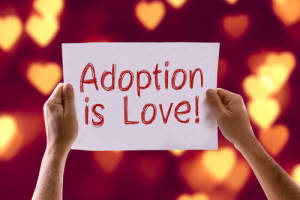
Rabbi Ari Enkin
Adoption should not be viewed as any different or less meaningful than all other family ties, and parental responsibility is equal to that of biological parents.
For a variety of reasons, couples and families often decide to adopt a child. This unique circumstance of raising a child not biologically related to the family often presents some interesting issues from the perspective of Jewish law, as well as challenges. Here we will discuss some of the more common issues facing those who would choose this option.
Adoption is a highly regarded decision which was exercised by even the greatest figures in Scripture. For example, Mordechai (of the famous Purim story) adopted Esther, and Michal, a wife of King David, adopted several children. Adoption is a great mitzvah (commandment) lauded by the Talmud (central text of rabbinic Judaism). Couples who could not have children naturally and decide to adopt are considered to have fulfilled the requirement to procreate, as are all other parents. Jewish law views all of a parent’s practical, familial and social responsibilities to be equal for adopted children. So, too, the child is fully enjoined to treat his adoptive parents as other children treat their biological ones, particularly with regard to the mitzvah of honoring one’s mother and father.
It is worth noting that for a variety of reasons, adopted children should be told at an early age that they are adopted.
Some of the more difficult halachic (Jewish legal) issues to deal with in adoption are those of physical contact among the children as they grow up and with the parent of the opposite sex. Although hugging and kissing between members of the opposite sex is generally forbidden, some authorities allow parents to do so with their adoptive children who were taken into the family when they were infants. This is because the relationship that develops from such an early age is identical to one that is developed with biological offspring, with no fear of ulterior motives from the parent. Other authorities insist, however, that all regulations such as the prohibition of being alone with the opposite sex, as well as touching, apply to adopted children.

(shutterstock)
It is interesting to note that there is some debate as to which names should be used on halachic documents, such as a get (divorce document) or ketuba (marriage contract) – those of the biological parents or the adoptive ones. Some authorities suggest using the adoptive parents’ names but specifying in the document that, indeed, they are adoptive parents. Others are more hesitant to completely ignore the child’s biological origins and require the name of the biological parents to be used on all documents. With regard to calling adoptive sons to the Torah, there is more room to consider calling them as “son of” the adoptive father.
End-of-life issues with regard to adoptive parents are essentially treated the same in terms of the adopted child’s responsibilities. For example, children should observe the traditional week of mourning (shiva) and recite all the traditional mourner’s prayers (Kaddish) on the passing of their adoptive parents. In reality, however, it would be remiss not to point out that according to many eminent authorities, there is no penalty for not doing so, if the child so chooses.
Adoption should not be viewed as any different or less meaningful than all other family ties. As with all important decisions in life, a competent orthodox rabbi should always be consulted.
By: Rabbi Ari Enkin, rabbinic director, United with Israel
